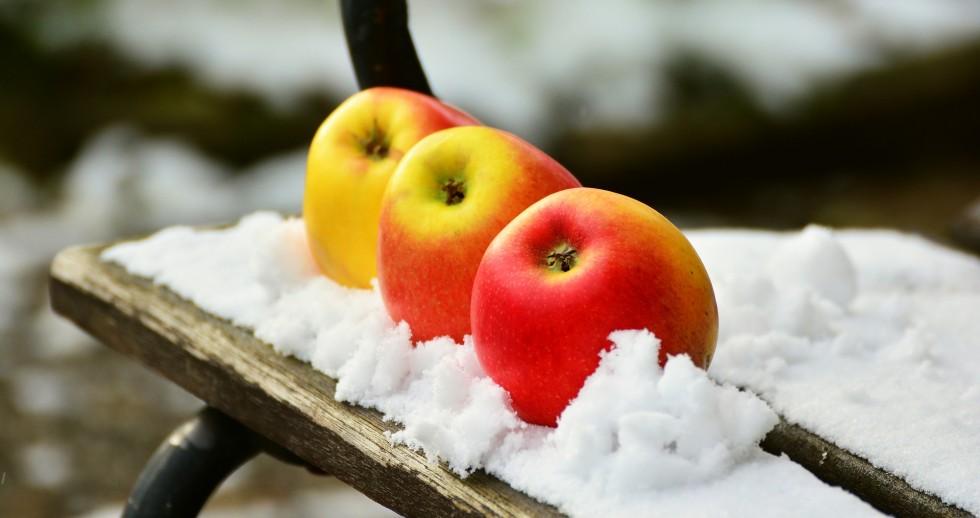Although some of you may think that the gardening season ends with fall, this is actually not true. Certain plants can really withstand snow and ice quite well. However, it is spring that we are looking towards for the beginning of a new gardening season. Any professional gardener would say that a good harvest in fall is possible only if you take the necessary steps to protect your plants from the harmful effects of winter. So, even though you might be tempted to forget about your garden until the first warm rays of sun next year, we recommend putting on some warm clothes and doing extra work on your favorite patch of land. Believe us: All your efforts will pay off. Here is what exactly you can do.
1. Start winter gardening by cleaning the ground
First, remove any dead plants, leaves, and other remnants of the harvesting season. It is important because dead vegetation can contain deadly microorganisms that will come to life in spring and prevent the normal growth of new plants.
2. Water plants before the temperature drops below the freezing point
In the past, people used to think that watering plants and trees in winter is ruinous for their health because the water turns to ice in the soil. Now, researchers have discovered that giving water to plants before the earth freezes is beneficial for them, since it produces extra heat. The bottom line: Water the ground where your plants grow before the temperature falls below zero. Don’t forget about your fruit trees either.
3. Keep pests away from your garden
You can experience problems with small and large pests in the winter, too. As for the harmful microorganisms in your soil, the best way to counteract them is to use winter wash. That organic spray should be applied to the stems and leaves of all your plants and trees. It will kill any mites that are able to survive in cold conditions. Make sure that you cover every inch of your plants with winter wash. Otherwise, pests will find all unprotected spots and thrive on them.
Large pests like wild rabbits are also dangerous. They can damage your greenhouses or cold frames. The best method to keep them away from your garden is to make a scarecrow yourself or buy it at a specialized store.
4. Remember to clear snow from your plants and trees
Some winters can be very snowy, others not. Anyway, remember to regularly clear snow from the plants and trees that grow in your garden. If you don’t, snow may break them. That said, only remove snow by gently shaking it off. When you see that a plant seems too feeble to be able to resist a snow cover, use a stake or string to fix it securely. Snow on the roof of your greenhouse is also highly undesirable for two reasons. First, it may cause the roof to sag. Second, it will block the sunlight from falling onto the plants within the greenhouse.
5. Make burlap wrap tents for your shrubs and trees
This is an inexpensive, yet very effective gardening method to protect your smaller shrubs and trees from cold weather risks. You can build a more sophisticated burlap wrap tent by using stakes and strings to keep the tent in place. Alternatively, just cover your plants with burlap wrap. A word of caution: Clear snow from your burlap wrap tents frequently. Otherwise, it may accumulate over them and break small branches of the plants inside.
6. Shield your garden from salt
Roads are normally slippery in winter. To remove the icy cover, highways are covered with special salt. If your garden is located near the road, this salt may be brought to it by the forces of nature. That substance is extremely harmful for plants and trees, and you must do whatever you can to block it. To achieve that, use a landscape shield mounted on a fence that encircles your garden.
7. Mulch, mulch, mulch
Mulching has several advantages. First, it keeps your soil frozen. It matters because it keeps your plants from awakening during the cold winter months. If they come to life too early during a warmer spell, they may die when the temperature falls below zero again. Second, when the soil is frozen, all harmful microorganisms get killed. So, mulching is useful here, too.
There are also other ways to safeguard your garden plants in winter such as building hotbeds. If you are not up to so much work and you’d rather spend your winter evenings in the comfort of your home, consider hiring professional gardeners. With their help, you are guaranteed to have a harvest that will amaze your neighbors.





